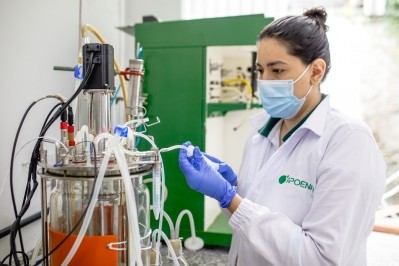Lemongrass essential oil may serve as skin protectant

A study published in Cosmetics in February tested the effects of topically applied lemongrass essential oil on skin health. The group of Portuguese researchers found that the topical application resulted in lower trans epidermal water loss, blood perfusion, erythema and edema.
Lemongrass, scientific name Cymbopogon citratus, originated in Southeast Asia and is used worldwide in food and beverages. Lemongrass essential oil (EOCC) is used in fragrances and medicine. The study authors write, “these essential oils are also well known from ethnopharmacology, where they are often applied in traditional medicine to reduce stress, fever, stomach disorders, constipation, pain, and anxiety.”
Prior studies have found a beneficial effect of lemongrass essential oil on skin but only on animal models. The authors of this study sought to test this on human participants.
“Regarding the often mentioned anti-inflammatory, antioxidant, and healing properties, there is sufficient evidence that many essential oils contain different bioactives capable of interfering with the arachidonic metabolism, altering the production of inflammation mediators, and affecting pro-inflammatory gene expression, but only a few studies explored these mechanistic questions.”
Testing and Formulation
Researchers obtained the lemongrass essential oil directly via a supplier and confirmed its authenticity via tests such as mass spectrometry.
Fourteen participants were chosen for the study. Three areas on each participants’ forearm were marked — one for the gel containing the essential oil, one for the vehicle gel alone and one control area. Participants were shown how to apply the gels in the lab and given instructions to do so at home. The study consisted of twice daily applications for 14 days and participants were contacted regularly to ensure they were following procedure.
After 14 days, researchers conducted tests on the three skin areas. After control tests were completed, they applied a challenge agent of methyl nicotinate to create a micro-inflammatory response. By creating this response, researchers could determine whether the lemongrass essential oil held any benefits for topical use.
Results and Conclusions
High-resolution sonography images were taken before and after methyl nicotinate application.
The area which had the lemongrass essential oil applied showed better epidermal hydration and barrier integrity, compared to the other two areas. The authors speculate that this could be due to a combination of the essential oil’s anti-inflammatory capacity, barrier reinforcement effect and the diminished production of free radicals and pro-inflammatory mediators.
“In summary, our results provide clear evidence of a protective effect of topically applied EOCC in human skin and prompt the need to better define the antioxidant and/or anti-inflammatory capacities of EOCC when applied to healthy human skin.”
Source: Cosmetics
2023 10(1): 29 https://doi.org/10.3390/cosmetics10010029
“Revealing the Protective Effect of Topically Applied Cymbopogon citratus Essential Oil in Human Skin through A Contact Model”
Authors: de Andrade, S. F. et al.










![Chinese study highlights mental health challenges in atopic dermatitis, emphasising holistic patient care. [Getty Images]](https://www.cosmeticsdesign-europe.com/var/wrbm_gb_food_pharma/storage/images/_aliases/wrbm_tiny/publications/cosmetics/cosmeticsdesign-asia.com/headlines/formulation-science/chinese-research-linking-atopic-dermatitis-to-mental-health-underscores-need-for-holistic-care/17040623-1-eng-GB/Chinese-research-linking-atopic-dermatitis-to-mental-health-underscores-need-for-holistic-care.jpg)








